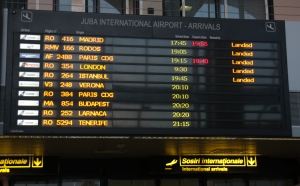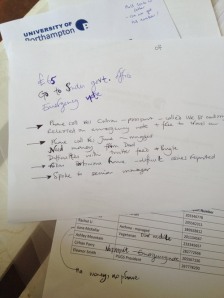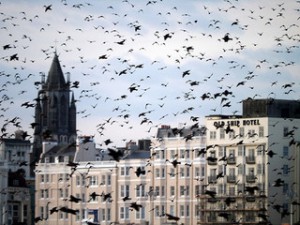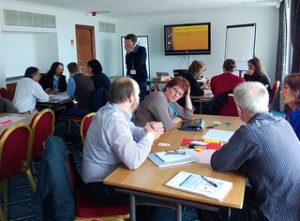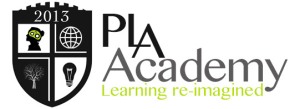 11:30am, Thursday 11th July: a Registrar instructs the Head of the Press Office to send an urgent press release out, whilst the PVC (Students) phones a worried parent about their daughter, who has just had her money stolen in a distant airport. This might be a scenario which has played out during a high profile student fieldtrip in another institution, but in this case all of the above persons and events are fictional. Not that you could tell, looking in.
11:30am, Thursday 11th July: a Registrar instructs the Head of the Press Office to send an urgent press release out, whilst the PVC (Students) phones a worried parent about their daughter, who has just had her money stolen in a distant airport. This might be a scenario which has played out during a high profile student fieldtrip in another institution, but in this case all of the above persons and events are fictional. Not that you could tell, looking in.
The PVC, Registrar etc. were in fact participants in a workshop I ran with Simon Brookes (University of Portsmouth) and Sarah Underwood (University of Leeds), in conjunction with the Higher Education Academy, at the University of Leicester. The day-long event focussed on Pervasive Learning Activities (PLAs) – an authentic/experiential approach to learning which we developed from the educational benefits of Alternate Reality Games (Brookes & Moseley, 2012; Moseley, 2012) and which Simon and Sarah have implemented in whole module designs for undergraduate Business students.
We structured the workshop around the ‘why, what and how’ of PLAs. Simon opened the day with an excellent introduction to ‘why’ we recommend PLAs for effective teaching of domain knowledge and ‘professional competencies’ together. And then, because PLAs are focussed around creating authentic contexts – with the actions, events, roles and artefacts used in those contexts – at 11am prompt we asked our participants to open their name badges, and fold them over to reveal their new identities. On the screen, a plane touched down in a dusty landscape and an arrivals board showed Kenyan Airways flight RO354 touching down in Juba International Airport. One half of the group (the University Geography department) went to their office, whilst the Senior Management team gathered in their Operations Room.
For the next hour, each team had to quickly familiarise themselves with the Geography department fieldtrip they were overseeing (see the Geography Student Society blog), and cope with a variety of problems ranging from lost passports to an outbreak of rioting at their intended destination. Whilst the Geography dept were liaising by phone with the group leader on the ground (superbly played by our colleague Katie Piatt in Brighton by prior arrangement), the Senior Management Team could be found checking student Twitter feeds as they contacted the South Sudesia Embassy for latest travel advice (staffed by bored jobsworth receptionist, ably delivered by Nic Whitton in Manchester).
By the end of the hour, the teams had quickly dropped into their learning context, and successfully negotiated a number of events in (pretty much) the way a real University department and SMT team might have done.
After lunch, we revealed the preparation which had gone into their experience: the planning stages, the preprepared artefacts (including documents which had been posted out to participants in advance of the workshop, to set the scene), the scripts which Katie and Nic had been working to, and the live updates/responses we had been making during the hour. There was much fascinating discussion as participants considered their own discipline contexts and how a PLA, and the design process, might work for them. The design process, with worked examples, is available on our dedicated web site:
We would like to thank everyone who participated in the workshop, hope that it provided you with plenty to consider for your own context, and thank the HEA for their support and partnership in hosting and promoting the event.
References:
Brookes, S. & Moseley, A. (2012) “Authentic Contextual Games for Learning”. In Whitton, N. & Moseley, A. (eds) Using Games to Enhance Learning and Teaching: A Beginner’s Guide. Routledge: New York, pp91-107.
Moseley, A. (2012) “An Alternate Reality for Education?: Lessons to be Learned from Online Immersive Games”, International Journal of Games Based Learning, Vol 2, No. 3, pp32-50.

